Oven Cleaning: The Ultimate Guide to a Sparkling Oven
Why Regular Oven Cleaning is Essential
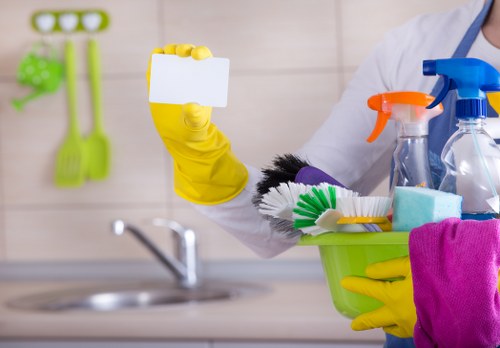
Keeping your oven clean is not just about maintaining appearances; it's essential for health, efficiency, and the longevity of the appliance. A dirty oven can lead to unpleasant odors, smoke during cooking, and can even become a fire hazard.
Regular oven cleaning ensures that your food cooks evenly and prevents the buildup of residue that can affect the taste and quality of your meals. Additionally, a clean oven operates more efficiently, reducing energy consumption and saving you money in the long run.
Moreover, maintaining a clean oven extends its lifespan, delaying the need for costly replacements or repairs. It’s an investment in both your kitchen’s functionality and your overall well-being.
Types of Oven Cleaners
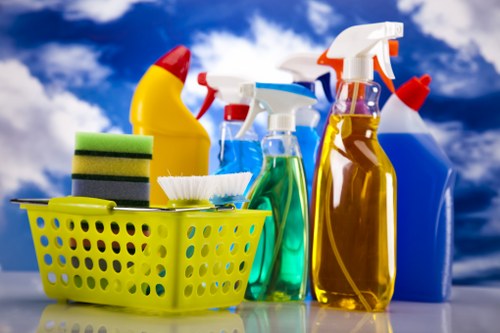
When it comes to oven cleaning, various methods and products can be utilized, each with its own benefits and considerations. Understanding the different types of oven cleaners can help you choose the best approach for your needs.
Chemical Cleaners: These are powerful solutions designed to break down stubborn grease and burnt-on food. They are typically applied directly to the oven surfaces, left to sit, and then wiped off. While effective, they should be used with caution, adhering to safety instructions to avoid harmful exposure.
Natural Cleaners: For those seeking eco-friendly alternatives, natural cleaners like baking soda and vinegar offer a safer option. These substances can effectively clean your oven without the use of harsh chemicals, making them suitable for households with children or pets.
Step-by-Step Oven Cleaning Process
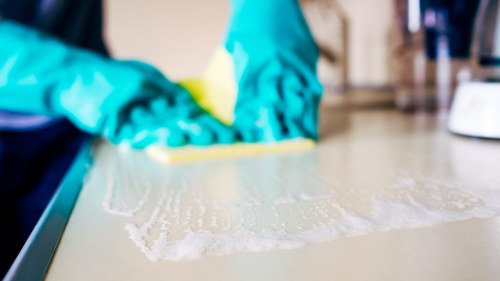
Cleaning your oven doesn’t have to be a daunting task. Follow these simple steps to achieve a spotless oven:
- Preparation: Remove all racks, trays, and any other removable parts. Soak them in warm, soapy water to loosen grime.
- Create a Cleaning Solution: Depending on your preference, use a chemical cleaner or a natural mixture of baking soda and water.
- Apply the Cleaner: Spread the solution evenly on the oven surfaces, avoiding heating elements. Let it sit for the recommended time to allow the cleaner to break down the grime.
- Scrub and Wipe: Use a scrubbing brush or sponge to remove loosened dirt. Wipe away the residue with a damp cloth.
- Final Rinse: Clean thoroughly to ensure no cleaning agents remain, then replace the racks and trays.
Safety Tips for Oven Cleaning
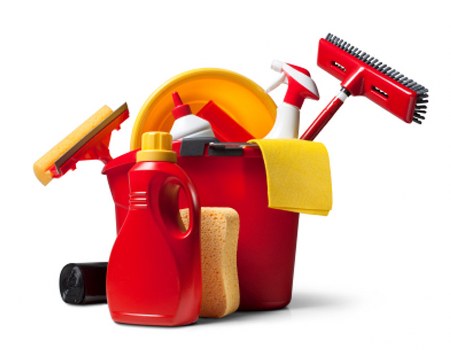
Ensuring safety during the oven cleaning process is paramount. Here are some essential tips to keep in mind:
- Ventilate the Area: Open windows and use fans to ensure proper ventilation, especially when using chemical cleaners.
- Protect Your Hands: Wear rubber gloves to protect your skin from harsh chemicals and hot surfaces.
- Avoid Mixing Cleaners: Never mix different cleaning agents, as this can create toxic fumes or dangerous reactions.
- Unplug the Oven: Ensure the oven is turned off and unplugged before starting the cleaning process to prevent accidents.
- Dispose of Waste Properly: Safely dispose of used cleaning solutions and materials, following local guidelines.
Maintenance Tips for a Clean Oven
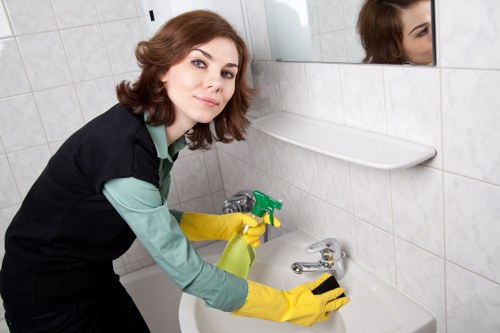
Preventing buildup in your oven is much easier than dealing with heavy cleaning. Implement these maintenance strategies to keep your oven in pristine condition:
- Wipe Spills Immediately: Clean up any spills or splatters as soon as the oven cools down to prevent them from hardening.
- Use Oven Liners: Place liners or mats at the bottom of the oven to catch drips and crumbs, making cleanup easier.
- Regular Deep Cleaning: Schedule periodic deep cleans using either chemical or natural cleaners to maintain overall cleanliness.
- Maintain Racks and Trays: Regularly clean the racks and trays to prevent grease buildup that can transfer to the oven interior.
- Avoid Clutter: Keep the oven interior free from unnecessary items, allowing proper air circulation and even cooking.
By following these maintenance tips, you can ensure your oven remains efficient and spotless, reducing the need for frequent intensive cleanings.
Common Oven Cleaning Mistakes to Avoid
Even with the best intentions, certain mistakes can hinder your oven cleaning efforts or even damage the appliance. Here are some common pitfalls to watch out for:
- Using Abrasive Tools: Metallic scrubbers or harsh abrasive pads can scratch and damage the oven surfaces. Opt for soft sponges or brushes instead.
- Neglecting Safety Precautions: Failing to wear protective gear or properly ventilate the area can lead to health hazards, especially when using chemical cleaners.
- Skipping Regular Maintenance: Allowing grime and spills to accumulate makes cleaning more difficult and can reduce the oven’s efficiency.
- Ignoring Manufacturer’s Instructions: Each oven model may have specific cleaning guidelines. Always refer to the user manual to avoid voiding warranties or causing damage.
- Overusing Chemical Cleaners: Excessive use of harsh chemicals can degrade oven components over time. Balance chemical cleaning with natural methods for optimal results.
Eco-Friendly Oven Cleaning Solutions
For environmentally conscious individuals, eco-friendly oven cleaning is a preferable option. These methods minimize chemical usage and reduce environmental impact:
- Baking Soda and Water: Create a paste using baking soda and water. Apply it to oven surfaces, let it sit overnight, and then wipe it clean for an effective, natural clean.
- Vinegar Spray: After applying the baking soda paste, spray vinegar over it. The reaction helps loosen stubborn grime, making it easier to clean.
- Lemon Juice: Lemon juice can act as a natural degreaser. Mix it with water and vinegar to create a powerful yet gentle cleaning solution.
- Essential Oils: Add a few drops of essential oils like tea tree or lavender to your cleaning solutions for added antibacterial properties and a pleasant scent.
- Steam Cleaning: Utilize the oven’s steam function if available. Steam can help loosen dirt and reduce the need for chemical cleaners.
These eco-friendly solutions not only protect your oven but also promote a healthier home environment.
Choosing the Right Oven Cleaner for Your Needs
Selecting the appropriate oven cleaner depends on several factors, including the level of grime, your cleaning preferences, and any health considerations:
- Level of Dirt: For heavy-duty cleaning, chemical cleaners might be more effective. For lighter stains, natural cleaners may suffice.
- Health Considerations: If you have allergies or sensitivities, opt for non-toxic, natural cleaning agents to minimize health risks.
- Eco-Friendliness: Choose biodegradable and environmentally safe cleaners to reduce your ecological footprint.
- Ease of Use: Consider how easy the cleaner is to apply and remove. Some solutions require extensive rinsing, while others wipe away easily.
- Cost: Budget your cleaning supplies. Natural ingredients like baking soda and vinegar are often more affordable than commercial cleaners.
By evaluating these factors, you can make an informed decision that aligns with your cleaning needs and values.
Dealing with Stubborn Stains and Buildup
Even with regular cleaning, certain stains and buildups can be particularly challenging. Here are strategies to tackle stubborn oven stains:
- Bake a Steam Session: Place a heat-safe bowl of water with lemon slices inside the oven. Heat it to create steam, which helps loosen tough grime.
- Use a Scraping Tool: Carefully use a plastic scraper to remove hardened residues without scratching the oven surface.
- Repeat Cleaning Solutions: For persistent stains, apply your chosen cleaning solution multiple times, allowing it to sit longer between applications.
- Seek Professional Help: If stains remain despite your efforts, consider hiring a professional cleaner to address the issue effectively.
Persistence and the right techniques are key to overcoming the toughest oven cleaning challenges.
Preventative Measures to Minimize Oven Mess
Taking proactive steps can significantly reduce the amount of cleaning required and keep your oven looking pristine:
- Use Baking Sheets: Line baking sheets with aluminum foil or parchment paper to catch spills and drips during cooking.
- Cover Dishes: When roasting or baking, cover dishes to prevent splatters and spills from spreading inside the oven.
- Organize Cooking Times: Avoid overcrowding the oven by spacing out cooking times, which reduces the chances of spills and burns.
- Regularly Inspect: Periodically check for signs of buildup and address them early before they become more difficult to remove.
- Educate Household Members: Ensure everyone using the oven understands proper cooking practices to minimize messes and spills.
Implementing these preventative measures fosters a cleaner cooking environment and simplifies maintenance.
Benefits of a Clean Oven Beyond Aesthetics
A spotless oven offers numerous advantages that go beyond mere visual appeal:
- Improved Cooking Performance: A clean oven ensures even heat distribution, leading to better cooking results and consistent meal quality.
- Energy Efficiency: Reduced buildup means the oven doesn't have to work as hard to maintain temperatures, leading to lower energy consumption.
- Enhanced Safety: Removing grease and grime reduces the risk of fires and minimizes the chances of smoke inhalation during cooking.
- Healthier Cooking Environment: Eliminating food residues prevents the growth of bacteria and mold, ensuring a healthier kitchen space.
- Extended Appliance Lifespan: Regular maintenance prevents wear and tear, prolonging the oven's operational life and delaying the need for replacements.
These benefits highlight the importance of maintaining a clean oven as part of your overall household care routine.
When to Consider Professional Oven Cleaning Services
While DIY cleaning is effective for routine maintenance, there are instances when professional oven cleaning services are the better option:
- Severe Buildup: Extensive grime and tough stains may require specialized equipment and expertise beyond home cleaning methods.
- Time Constraints: If you're short on time or prefer not to undertake the cleaning process yourself, professionals can handle the task efficiently.
- Complex Oven Designs: Modern ovens with intricate features or self-cleaning modes might benefit from professional attention to avoid damage.
- Health Concerns: Individuals sensitive to cleaning chemicals or with respiratory issues may prefer professionals who use safer, non-toxic cleaning methods.
- Regular Maintenance Plans: Scheduling regular professional cleanings can ensure your oven remains in optimal condition without the hassle of DIY maintenance.
Professional services offer convenience, expertise, and thoroughness, making them a valuable option for maintaining your oven's cleanliness and functionality.
Choosing the Right Professional Oven Cleaning Service
When selecting a professional oven cleaning service, consider the following factors to ensure quality and satisfaction:
- Reputation: Look for reviews and testimonials to gauge the service provider's reliability and effectiveness.
- Experience: Choose companies with extensive experience in oven cleaning to ensure they handle various oven types and conditions competently.
- Environmental Practices: If eco-friendliness is important to you, seek out services that use sustainable and non-toxic cleaning agents.
- Pricing: Compare pricing structures to find a service that offers good value without compromising on quality.
- Guarantees: Opt for services that provide satisfaction guarantees or follow-up services in case of any issues post-cleaning.
By carefully evaluating these aspects, you can select a professional oven cleaning service that meets your requirements and ensures a thoroughly clean oven.
Cost Considerations for Oven Cleaning
Understanding the costs associated with both DIY and professional oven cleaning helps you make informed decisions based on your budget:
- DIY Cleaning: Costs typically involve purchasing cleaning supplies like baking soda, vinegar, or commercial cleaners, which are relatively inexpensive.
- Professional Services: Pricing can vary based on the service provider, the extent of the cleaning required, and your geographical location. On average, professional oven cleaning ranges from $100 to $300.
- Long-Term Savings: Investing in regular maintenance can prevent costly repairs or the need for a new oven, offering long-term financial benefits.
- Time Investment: DIY cleaning requires time and effort, which can be factored into your overall cost assessment.
- Value Added: Professional cleaning can enhance the performance and lifespan of your oven, providing added value beyond the immediate clean.
Balancing upfront costs with long-term benefits will help you choose the most economical and effective oven cleaning method for your situation.
Frequently Asked Questions About Oven Cleaning
Addressing common queries can help clarify doubts and streamline your oven cleaning process:
How often should I clean my oven?
It's recommended to clean your oven at least once every three months. However, frequency may vary based on usage; heavy use may require more frequent cleaning.
Can I use the self-cleaning feature of my oven?
Yes, most modern ovens come with a self-cleaning feature that burns off residue at high temperatures. Follow the manufacturer's instructions carefully to use this feature safely and effectively.
Are natural cleaners as effective as chemical ones?
Natural cleaners like baking soda and vinegar can effectively remove light to moderate grime. For heavy buildup, chemical cleaners may offer more robust cleaning power.
Is it safe to mix baking soda and vinegar for cleaning?
Yes, combining baking soda and vinegar can enhance their cleaning effectiveness through a chemical reaction that helps break down grime. However, always apply them sequentially rather than mixing them directly to avoid excessive bubbling.
What should I do if my oven still smells after cleaning?
Persistent odors may be due to lingering spills or trapped grease. Perform a deep clean, ensuring all residues are removed, and consider placing an open box of baking soda inside the oven overnight to absorb odors.
If you have any more questions or need assistance, contact us today for expert guidance and professional oven cleaning services.